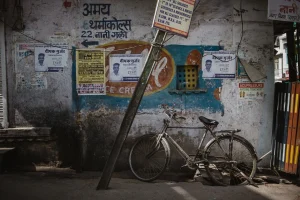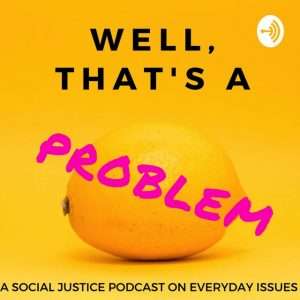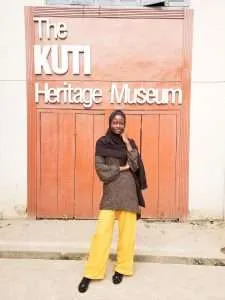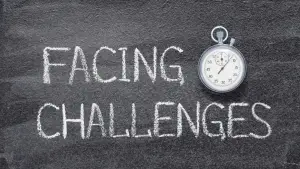The following article outlines my journey of obtaining my sociology degree in Nigeria.
From the Beginning
Growing up, every kid gets to answer the question of what they would like to be when they grow up, and on my side, I used to be adamant about being a banker. Seeing bankers in the banking hall, with so much money in front of them, seeing how people rush to the halls to deposit money in the bank, that gave me the belief that bankers are rich. I never knew that bankers only get to keep other people’s money for them, that money isn’t theirs.
While in senior secondary school, I chose the commercial class because I have a thing for commerce. My interest in commerce made me try getting a university admission to study business administration and management. I didn’t get the admission, possibly because I didn’t meet the cut off mark or I met the cut off mark but I was not fortunate enough to be shortlisted. I got admitted to study business administration in a Polytechnic. After obtaining my national diploma in business administration, I set out for my industrial training (IT).
During my IT, I learned about sociology from my sister who happened to have just finished studying the course at the University of Benin, Edo state, Nigeria. From having access to some of her books and also hearing some of the course titles, I became interested in studying sociology. I wanted to know more about the society we live in, know how society evolves, and understand the society better.
Obtaining a Sociology Degree in Nigeria
The procedures to obtain a degree in sociology vary from country to country and also from university to university. To be awarded a sociology degree in Nigeria, you have to pass the Joint Admission Matriculation Board (JAMB) examination—also known as the Unified Tertiary Matriculation Exam (UTME)—which is held once every year.
You are expected to do 4 subjects during the exam, and all four subjects sum up to a total of a 400 mark. To be qualified to enroll for the next exam, which is, you need to score above 180 in your JAMB/UTME, though most universities make their own cut off mark above 200.
I registered for the JAMB/UTME and my subject combination was Use of English, Commerce, Economics, and Government. I received a total score of 220, which allowed me a Post-UTME form for my university of choice, which was the University of Ilorin. Post-UTME is the exam you take after the JAMB/UTME, and is organized by each university. I got a total of 70% in my Post-UTME, which gave my chance of getting admitted a lift. I was admitted on merit when the admission list was released and I saw I got lucky. I was elated and felt fulfilled.
My first year studying sociology was an eye-opener for me. I got to learn, unlearn and relearn a lot of things. I learned about the likes of cultural diversity, man and culture, sociological theories, and about what feminism truly is, not what I’ve always seen on social media. Some of my favorite courses are anthropology, social psychology, sociology of the family, and crime and delinquency. Not to exaggerate, but all the courses I’ve taken play a major role in my understanding of man and the society, and how we can adjust to the changes in society.
Nearing the End of My Studies
I still have three semesters to round up my study, and, all things being equal, I will get my sociology degree next year. I have not been fortunate enough to work on some social projects, but I am fortunate enough to know someone who has. And he has agreed to share the knowledge he has garnered with me in the course of writing this article.
The following are the words of a sociologist, Yusuf Qudus Oyindamola, Bsc Sociology, Msc Development study and rural sociology:
Growing up, I had always wanted to study one of the management courses (Business administration or accounting) as I had never heard of sociology. Fast forward to my Senior Secondary school days, I became comfortable with economics and commerce and later won the best commercial students in my local government. This prompted me to apply for economics during my Joint Admission Matriculation Board Examination. I had picked economics as both first and second choice in the two universities of choice.
I passed and was offered admission in sociology. Prior to this time, I had never heard about the course, but I have an uncle who studied social work and have an understanding of what sociology is about. So, he convinced me to take the admission. Despite that, I had the intention to cross to the Economics Department in my sophomore year. This made me take lots of economics courses which I passed as a 100 level student.
However, in the course of my first year, I was taught by amazing professors who made sociology an awesome discipline and eventually more enticing. Although, often time I get mocked by my friends that I would eventually end up to be a social studies teacher, I did not budge and I took sociology with more seriousness.
I ensured that I made the course more practicable and applicable in such a way that ensured whatever I was taught in the class was being applied to my daily life. This influenced my thinking and perception about the society, and I became more relevant as a student leader and student politician, as I always drew from different sociological theories of Karl Marx, Max Weber, etc. in my conversations among students.
All through my undergraduate days, I was exposed to different courses in sociology, including Social Institutions, ICT, Social Problems, Social Research, Sociological Theory, Human Resources Management, Rural Sociology, Urban Sociology, Criminology, Sociology of Development, and others.
This exposed me to various opportunities that lie ahead as a sociologist, while also building my capacity in social research with the ability to understand and apply different social research methods. In my final year, we were exposed to practical rural sociology which took us to a rural village where we related and understood practical rural life. This particular exercise developed my community entry and engagement skills.
The first professional community-based research I was engaged in was with the National Institute of Health Research, Global Health Research Unit on Improving health in the slum. NIHR is an international organization in the United Kingdom. They had embarked on a five-year study of health in rural areas in Nigeria, Bangladesh, Kenya, and India which was handled by Warwick University and the University of Ibadan.
I was among the research assistants that conducted survey and health facility observation of three selected slums in Lagos and Ibadan. During this project, which lasted for 7 months, I was able to apply my social research skills, both qualitative and quantitative. I conducted about 509 households surveys across the three slums areas and about 100 facility observation (qualitative). This project helped me improve more on my social research skills as I was under the supervision of professors in the field of sociology and public health.
Yusuf Qudus Oyindamola, Bsc Sociology, Msc Development study and rural sociology:
Those are the words of Yusuf Qudus.
The journey of getting a sociology degree in Nigeria is one filled with so much to learn about how the field can be of great and positive impact in the development of the society. It is not shocking that there is no societal issue that does not have a sociological theory to serve as a blueprint.







